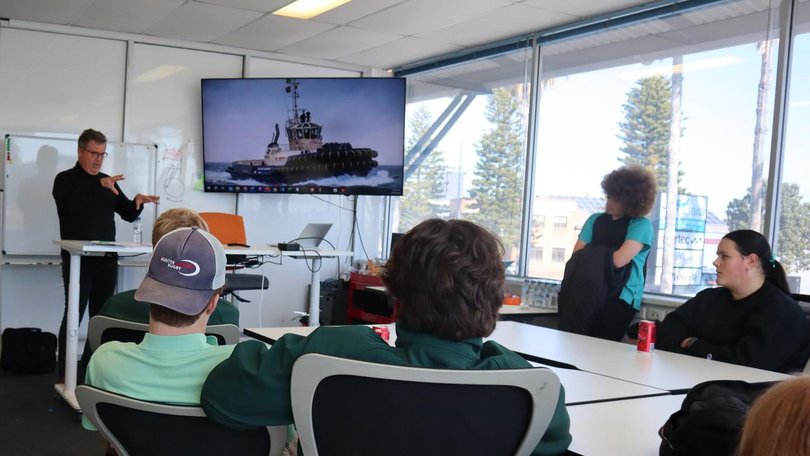Work to do: Net-zero jobs yet to resonate in classroom
Australia is heading towards labour shortages in the clean energy transition and industry have been urged to step up to inspire the next generation of workers.

For some industries keen to get their career pathways message in front of school students, it can be a matter of elbows out or bust.
For the clean energy sector, it’s a hard reality.
Inspiring the next generation of talent necessarily means a tough time finding a way into the classroom.
Sign up to The Nightly's newsletters.
Get the first look at the digital newspaper, curated daily stories and breaking headlines delivered to your inbox.
By continuing you agree to our Terms and Privacy Policy.Education syllabuses are not particularly accommodating for career awareness, though that is starting to change, according to MCB Business Partners chief executive Duncan Burck.
“It takes a lot of work to land in school, in the curriculum, when there’s a lot of things you’ve got to compete against,” he told AAP.
Australia is in the middle of a rapid transition to an energy system powered largely by solar and wind, a massive undertaking that needs tens of thousands of extra workers to execute smoothly.
Workforce shortages are already predicted.
The government-backed independent Powering Skills Organisation expects a shortfall of 42,000 trade workers in the next decade without further investment in training and upskilling.
Surveying done by Mr Burck’s team suggests few pre-tertiary students have a strong grasp of the career opportunities afforded to them by slashing greenhouse gas emissions from the economy.
“Young people don’t know what the term net zero actually means,” he said.
Students were more familiar with terms such as “climate change” and “renewable energy”, encouragingly, with roughly a third of the 88 surveyed at a career expo between grades five and 10 expressing interest in clean energy.
Students were also asked their preferred method to learn about future jobs.
Hands-on activities and digital simulation games, akin to Roblox or Minecraft, were favoured over lectures or reading materials.
A teaching sequence on designing solar panels has already been developed through pilot program run by MCB Business Partners, with support from government and in tandem with a company helping power Coldplay tours with printed solar panels.
The learning materials include the maths and the physics of photovoltaic design, as well as the commercialisation of the product, allowing the learning material to easily slot into mandatory commerce or science classes.
“We’re being smarter around how we tell the story of what’s going in the real world by lining it up with dot-points in these mandatory subjects that teachers need to teach,” Mr Burck said.
Making it easy for teachers to embed career-based material into classroom learning is typically a more successful strategy than trying to carve out time for standalone workshops or lessons, he said.
Another project from his team explores the economic and social challenges of running low carbon music festivals, material best suited to geography and social studies classes.
“These generally aren’t the STEM kids, but these kids have an even bigger role to play in storytelling.”
Communication and storytelling skills are all-important in the context of growing community discomfort and opposition to large-scale renewables and low carbon development, Mr Burck said.
Keeping industry involved is another challenge.
Especially so when the fruits of the labour - a pipeline of new workers - take years to materialise and potentially longer than corporate leaders plan to stick around.
The best results come when industry partners line up investment in education programs with their existing ESG or corporate social responsibility commitments, Mr Burck said.
“It’s important that they’re involved, because I don’t think there’s anybody as good as industry who can tell the story of the careers and opportunities.
“They just can’t stand back and wait for education to deliver the human capital for this transition.”
